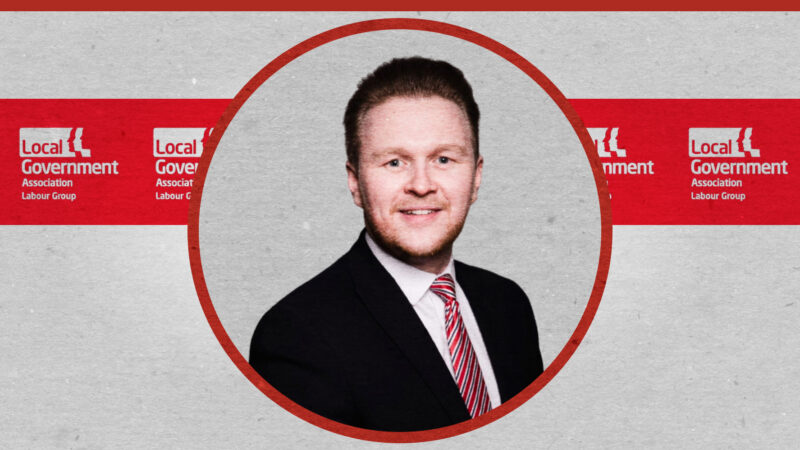
In May 1973, Ted Heath was Prime Minister, Pink Floyd had recently released their album Dark Side of the Moon and VAT had just come into effect in the UK. This month also marked the first elections to the newly formed metropolitan borough of Manchester City Council. Labour took control of the Manchester City Council with 59 of the 99 seats on the authority, and thanks to the hard work, renewal, innovation and tireless campaigning of successive groups of Labour councillors, Manchester City Council has been Labour-run for the 47 years since.
For some people, this is a problem. There is an argument I hear from some party members that one-party rule – even when that party is Labour – is unhealthy, and that there is a danger that our party’s reputation is damaged locally as a result of being seen as ‘the establishment’.
Although Labour has enjoyed nearly half a century leading the great city of Manchester, it would be a mistake and misunderstanding to describe Manchester City Council Labour group as ‘the establishment’ in Manchester politics. In fact it is their insurgency, rather than their incumbency, that has secured them the trust of the people of Manchester in the 35 successive elections they’ve fought and won since 1973. And anyone who has visited Manchester would agree that Labour’s success has been reflected in the city’s success over the last 40 years.
Think about this for a moment. Labour has been in government nationally for a total of just 18 years and 74 days of the last 47 years. Compare this to Manchester Labour group’s 47 years in power over the same period, and it is clear there are stark lessons for our party and movement to learn from Labour councillors in Manchester – just as the party can and should learn from the best of Labour in local government across the rest of the UK.
Up and down the country, Labour councillors in Labour-led authorities are putting socialist principles into practice and creating fairer, more equal communities – despite being forced to operate with both hands tied behind their backs as a result of a decade of severe Tory cuts. And in opposition, Labour councillors are holding Tory and Lib Dem administrations to account, as well as influencing council policies and flying the flag for social justice, fairness and equality in communities without Labour MPs, without a Labour government and without a Labour council.
The truth is Labour has led places like Manchester, Wakefield and Hackney for decades because they’ve never seen themselves as stewards of the town hall but as leaders of place. That leadership of place in Labour local government is rooted in our party’s founding mission – to wrestle power from Whitehall and Westminster and put it in the hands of those it affects. This can only ever be achieved by winning power for a purpose – that purpose being to harness the power of the community to advance the cause of the individual.
Our party’s record in towns, cities and counties across the UK is one of municipal socialism in action – winning the support of communities to tackle the poverty and inequality that exists in society. Labour-led councils in every region and nation of our country are pioneers of radically progressive policies – proudly celebrated in LGA Labour’s ‘100 More Innovations in Power’ – whilst our Labour councillors are campaigners for positive change in communities and problem solvers in our wards and divisions.
Labour in local government led the way on introducing the Living Wage, showed the positive impact of introducing free school meals for all primary school pupils before it was even being debated in Whitehall and Westminster, and help to resolve often complex issues for residents every day. We are the frontline defence against unrelenting Tory austerity, and must be front and centre of Labour’s local and general election campaigns.
Labour councillors and the communities we serve live with the dire consequences of a ruthless Tory government that has closed Sure Start Centres, slashed school budgets, created a national housing crisis and decimated funding for local public services by stripping 60p in every £1 from our budgets. Those that put forward the idea that Labour councillors are to blame for ‘accepting’ the cuts simply do the Tories’ dirty work for them. They’ve worked hard to try and blame Labour councils for cuts that have been forced on them, avoiding the blame for decisions they made in Westminster.
Our party rightly celebrates the radical progressivism of Clement Attlee’s post-war government founding the NHS, but we should also celebrate his pioneering work as mayor of Stepney – when he led his council to introduce its first sanitary inspectors and health visitors, as well as targeting local property owners who charged high rents to live in properties in bad conditions and his work to drive down local infant mortality rate.
As Labour begins to rebuild and renew to address the challenges of the decades ahead it must rediscover its localist roots and recognise that identities based on place and nation matter just as much, if not more than those of class or industry. Our talented Labour leaders in local government have more experience of being in power and making day-to-day decisions to help improve lives than most of our MPs in the current Parliamentary Labour Party – so please Labour let’s hear more from Manchester’s Sir Richard Leese, Bristol’s Mayor Marvin Rees and Leeds’ Judith Blake. Getting one of them on BBC Question Time would be a good start, and would soon put paid to the idea that they are ‘establishment’ in any way.




More from LabourList
Ashley Dalton resigns as health minister for cancer treatment
Paul Nowak column: ‘Labour must focus on the basics’
‘Labour’s two-child cap victory rings hollow while asylum-seeking children remain in poverty’